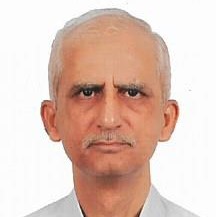My friend Fred Gohlke, who has one of the finest of minds, was discussing the means to usher in a system of democracy that is truly "government of the people, by the people and for the people'. In relation to "the need to harness human nature by making probity an asset in our electoral processes," he broached the question "Where does human nature come from?"
His delightfully methodical exposition of the evolution of human nature and society is available here: http://www.quora.com/Fred-Gohlke/Posts/Human-Nature-and-the-Will-To-Believe
Though Fred's exposition is undoubtedly erudite, I felt that it does not fully account for what is happening now to the human race (and not just to American society, which is Fred's specific subject). In particular, I find worrisome his dismissal of faith as a destructive force, since this view is symptomatic of a widespread social malaise. I suggest the following alternative account of mankind's present state, based on a view from the "inside,"' as opposed to Fred's view from the "outside." It offers a constructive interpretation that challenges today's general pessimism regarding faith and the state of the human race.
Let me start with a statement made by Fred himself: "However, those beings (primitive man) did not become 'human' until they began to change their animalistic behavior. The ability to make such a change defines what we call humans."
Now, what was the ability that led early humans to change their animalistic behavior? It was not merely higher intelligence. Along with higher intelligence that led to reasoning and abstract thinking, a spiritual intelligence must also have been at work that enabled them to distinguish between right and wrong.
Spiritual intelligence (synonymous with conscience at work) is a basic faculty that integrates the information gained through the senses and gives meaning to the thoughts that arise from it. The meaning is sensed at the core of one's being, at one's "inner self," which is also the source of bliss during deep sleep. When there is a lack of meaning, the "inner self" does not rest in peace. Thus, something is good (or right) when it is meaningful to the "inner self," and bad (or wrong) when it produces conflict and disturbs peace.
Western psychology recognizes "self" as the basis of human personality. It is "perceived reality," and can include any of the human perceptions, including peace. However, recently, the core of "self," the "inner self" has also been recognized. This is "pure consciousness," or "bliss," enjoyed during deep sleep. While "self" is perceived reality, the "inner self" is the core reality.
Animals too have a primitive spiritual intelligence, but their capacity for reasoning and abstract thinking is elementary; their potential for conflict is therefore minimal and the 'inner self' rests in peace. Since, by contrast, primitive man's spiritual intelligence had to contend with complex perceptions, it started working at a deeper level. The concept of good and bad, or right and wrong, first arose from the "inner self" of the individual. By extension, the same concept came to apply to the society as a whole.
The Three Tendencies in Human Nature
Apart from spiritual intelligence, there are three tendencies that determine human nature. These are what Indian philosophy calls the rajasic, tamasic and sathwic tendencies, or, in English respectively, the active, passive and serene tendencies. All three tendencies exist in every individual in varying proportions. The active tendency spurs the individual into action; the passive tends to enjoyment; and the serene seeks peace. The serene tendency is unique, in that it heals the disturbances caused by the other two tendencies.
Those with a dominant active tendency seek to push forward with their thought and action. This tendency, for example, spurred the caveman to kill animals for food and the king to rule over his subjects.
Those with a dominant passive tendency end up primarily seeking enjoyment in life. They are self-centered and have little concern for others.
Those with a dominant serene tendency are more balanced. They consider matters more objectively and are concerned with the welfare of society as a whole.
Fred Gohlke's "stronger" people correspond to those with dominant active and passive tendencies; his "weaker" people to dominant active and serene tendencies.
Faith, or "the will to believe," as Fred puts it, is related to the satisfaction felt by the "self" while it is considering a matter, which is dependent on the peace of the "inner self." Faith is a basic requirement for the normal human personality, since, without it, every matter would cause dissatisfaction and there could be no peace. Yet, faith is not exclusive to good actions or good people. It is of benefit to every person, even if the matter at issue or the person in whom it is reposed does not deserve the peace that flows from it. That considered, a good working rule for faith is this: take faith in something after due consideration, but be watchful that the faith is justified.
The Serene Tendency Is Key to a Meaningful Electoral Process
Accordingly,
(Note: You can view every article as one long page if you sign up as an Advocate Member, or higher).





